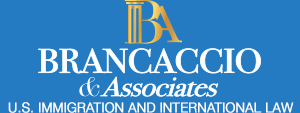On May 9th &10th 2023 Governor Ron DeSantis of Florida signed Senate Bills 264 & 1718.
The former will prohibit Chinese nationals from buying land unless they are American citizens or permanent residents. The bill also imposes certain restrictions for Chinese citizens—and others, including Russians and Venezuelans—with non tourist visas when it comes to buying land near a military base.
The latter makes using E-Verify mandatory for any employer with 25 or more employees, imposes enforceable penalties for those employing illegal aliens, and enhances penalties for human smuggling. Additionally, this bill prohibits local governments from issuing Identification Cards (ID) to illegal aliens, invalidates ID cards issued to illegal aliens in other states, and requires hospitals to collect and submit data on the costs of providing health care to illegal aliens.
SUMMARY OF SB 1718:
Re Driver’s Licenses/Identification Documents:
- Sect. 1 & 2: Prohibits counties and municipalities from providing funds to any person, entity, or organization to issue identification documents to an individual who does not provide proof of lawful presence in the United States;
NOTE: this only restricts the FUNDING by a county or municipality; such community IDs can still be issued, but not with county or municipality funding.
- Sect. 3(1) Makes driver’s licenses issued by other states to “undocumented immigrants unable to prove lawful presence” when the license is issued invalid in FL;
- Sec. 3 (2) Requires law enforcement officers and authorized representatives of the FL DHSMV to cite a person driving with a specified invalid license;
Re Hospitals and Collecting Immigration Status Info:
- Sec 5(1) Requires hospitals accepting Medicaid to “include a provision on its patient admission or registration forms to state or indicate whether the patient is a United States citizen or lawfully present in the United States or is not lawfully present in the United States,” but states that the inquiry on the form “must be followed by a statement that the response will not affect patient care or result in a report of the patient’s immigration status to immigration authorities”;
- Sec. 5(3) Requires that same agency to submit an annual report to the Governor and the Legislature by March 1 of each year containing “the number of hospital admissions or emergency department visits within the previous quarter which were made by a patient who indicated that he or she was a citizen of the United States or lawfully present in the United States, was not lawfully present in the United States, or declined to answer” AND “the costs of uncompensated care for aliens who are not lawfully present in the United States.
NOTE: An individual does not HAVE to provide their immigration status to hospitals; the bill requires the registration forms to include an option that states “decline to answer.”
Re “Employment Eligibility,” Employers, E-Verify, etc.:
- Sec. 6 (1). Makes it unlawful for “any person to knowingly employ, hire, recruit, or refer, for private or public employment within this the state, an alien who is not duly authorized to work by the immigration laws of the United States”;
-
Sec. 6 (3)-(4) Provides penalties for employers who violate these provisions,
- First-time violators: 1-year probation and required submission of quarterly reports to the department to demonstrate compliance;
-
Repeated violators within 24 months of previous violation: suspension or revocation of all licenses issued by a licensing agency depending on the number of “unauthorized aliens” employed
- suspension for up to 30 days if 1-10 unauthorized aliens,
- suspension for up to 60 days if 11-50 unauthorized aliens, and
- complete revocation of license if more than 50 unauthorized aliens.
- 6 (5) Provides criminal penalties (third-degree felony) for a person who “knowingly uses false identification document or who fraudulently uses an identification document of another person for the purpose of obtaining employment” who is “not duly authorized to work by the immigration laws of the United States
- 7(1)-(2). EMPLOYMENT VERIFICATION SYSTEM: Requires an employer to verify a new employee’s employment eligibility beginning July 1, 2023. Beginning July 1, 2023, the law:
- Requires that an employer “shall” verify each new employee’s employment eligibility within 3 business days after the first day the new employee begins working for pay.
- Requires private employers with 25 or more employees to use E-Verify for all new employees.
- The employer must retain a copy of the documentation provided for E-Verify and any official verification generated for at least 3 years.
- Prohibits an employer from continuing to employ an unauthorized alien after obtaining knowledge that a person is or has become an unauthorized alien;
NOTE: IT DOES NOT APPLY TO “An individual hired for casual labor, as defined in s.443 AND an independent contractor, as defined in federal laws or regulations, hired to perform a specified portion of labor or services is not an employee. Enforcement:
-
-
-
- Beginning July 1, 2024, authorizes the Florida Department of Law Enforcement to perform random audits of businesses to ensure they’re complying and, if it determines an employer is not complying, provide the employer with notice and 30 days to cure noncompliance;
- Imposes $1,000 per day fine on employer found to have failed to use the E-Verify system 3 times in a 24-month period until the employer provides “sufficient proof” that the “noncompliance is cured”;
- States that “[n]oncompliance constitutes grounds for the suspension of all licenses issue[d] by a licensing agency . . . until the noncompliance is cured.”
-
-
Re Criminal Penalties for “Human Smuggling”:
-
Provides criminal penalties for “person who knowingly and willfully transports into this state an individual whom the person knows, or reasonably should know, has entered the United States in violation of law and has not been inspected by the Federal Government since his or her unlawful entry”;
- Third-degree felony for first offense;
- Separate offense for each individual the person transports into FL;
- Second-degree felony for person who commits “five or more separate offenses”;
- Second-degree felony for a person “with a prior conviction under this section who commits a subsequent violation of this section”;
-
Provides criminal penalties for persons who transport minors into FL in violation of certain provisions;
- Second-degree felony;
NOTE: the bill does not criminalize
Living with, sheltering, or renting space to family, friends, or other individuals who are undocumented noncitizens;
Concealing, harboring, or shielding from detection undocumented noncitizens; or
SUMMARY OF SB 264 :
-
(1) Restrict governmental entities from contracting with “foreign countries of concern” which are defined as the PRC, Russian Federation, Iran, North Korea, Cuba, Venezuela and Syria if they would have access to personal identifying information.
(a) Defines Critical Infrastructure to include areas where there are guard posts, fences, and barriers at: airports, seaports, water treatment or wastewater treatment facilities, electric power plants, telecommunications central switching offices, refineries, chemical manufacturing facilities, liquid natural gas terminals, spaceports, and gas processing plants.
(b) Defines a foreign principal to include: any person who is domiciled in a foreign country of concern and is not a USC or LPR; any person or collection of persons or entities having a controlling interest in a partnership, association or other legal entity or subsidiary (Note: includes Chinese EB-5 projects)
(c) After July 1, 2025 no existing contract may be renewed with foreign countries of concern entities and an affidavit under penalty of perjury must be provided with all other entities that they are not a foreign country of concern entity.
(d) After Jan. 1, 2024 a governmental agency may not accept a bid, proposal or enter into a contract with any entity that would have access to personal identifying information unless the entity submits an affidavit under penalty of perjury that it is not prohibited foreign entity.
(e) Enforcement
i) Civil penalty equal to twice the amount of the contract for which the entity submitted a bid or proposal or entered into a contract;
ii) Ineligibility to enter into any other contract for 5 years
iii) Ineligible to receive a license, certification, or credential issued by a government entity for up to 5 years
iv) Placement on a suspended vendor list -
(2) Prohibits an foreign country of concern or an entity controlled by such country (where entity is 25% owned or receives 25% or more of profits or has power to direct policies of the company) to receive economic incentives in the state through tax incentives and local economic development programs
(a) Each company must submit an affidavit under penalty of perjury to obtain economic incentives that it is not a foreign entity - (3) Restricts conveyances of agricultural land (except “de minimus indirect interest”) to “foreign principals,” defined basically as any government official, business, or individual domiciled in a “foreign country of concern” unless that are a USC, LPR or individually or collectively do not have a controlling interest in the corporate entity that is organized, has its principal place of interest, or is a subsidiary of such entity. Foreign officials, foreign governments, and political parties or members of political parties in the countries of “concern” also are restricted.
-
(4) Restricts Purchase of Real Property on or within 10 miles of military installations or critical infrastructure facilities by foreign principals
(a) Same structure for penalties and reporting and ownership before and after July 1, 2023 except registration is with the Department of Economic Opportunity and registration is considered late after Jan. 31, 2024 and not Jan. 1. In addition, they must register the real property if acquired after July 1, 2023 within 30 days. Same structure for divestiture of property within 3 years if owned after July 1, 2023 due to divise, descent, or through security interest or debot.
(b) A foreign principal who is a natural person may purchase one residential real property of up to 2 acres in size if:
i) The parcel is not or within 5 miles of any military installation;
ii) The person has an NIV (but not just a B-1/B-2) or has been granted asylum and such documentation authorizes the person to be legally present within the state and the purchase is in the name of the person who holds the visa - (5) Restricts conveyances of any real property interest (except “de minimus indirect interests”) to foreign principals of the PRC unless they are a USC, LPR, or exempted as above. Registration, penalties and acquisition are the same as above. Only other exemption is for real property for diplomatic purposes.

